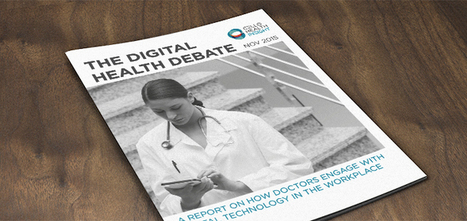Cello Health Insight published a report summarising findings from research conducted with doctors across 8 markets; including the UK, France, Germany, Italy, Spain, the US, China and Brazil. The research explores ways in which doctors are interacting with digital communication channels and digital devices in the workplace – focusing specifically on how doctors are using these to exchange information and communicate with peers, pharmaceutical sales representatives and patients.
Key Findings
Face-to-face communication still biggest influence on doctors’ prescribing behaviour. Digital technology is bringing healthcare professionals and patients closer together, but face-to-face information from peers, KOLs and pharmaceutical sales representatives remain the biggest influencers on prescribing behaviour.
Patients’ online diagnosis leading to requests for specific drugs. According to their doctors, patients are getting involved in their treatment decisions through self-diagnosis online. 69% of doctors surveyed agreed that many of their patients often look up their condition online prior to a consultation.
62% of doctors say that patients often came to them with a diagnosis that they wanted to discuss (having researched online). 40% of doctors surveyed said that their patients often specifically ask for a named prescription having diagnosed themselves online.
Doctors reluctant to recommend apps and wearables to patients, yet. Despite 41% of doctors surveyed agreeing that health apps could be a ‘game changer’, globally just 36% said they are likely to recommend such an app to their patients in future. Currently, the main reasons for recommending mobile health apps are: Diet and Weight Loss (70%), General health and fitness activity (65%), Health Monitoring (53%), Smoking Cessation (49%), and Compliance (45%).
36% of doctors surveyed say they are likely to recommend wearable technology to patients in the future, although there are significant geographical variations in this figure (US 43%, UK 33%, highest in Brazil 67%). The main barrier to recommendation of wearable tech and health apps was a concern that not all patients have smartphones (28%), followed by possible inconsistent use of the app leading to incomplete data (14%), perceived issues in integrating with existing health electronic management systems (11%) and doctors not having the time or necessary skills to make use of the data (10%).
Via Pharma Guy



 Your new post is loading...
Your new post is loading...







